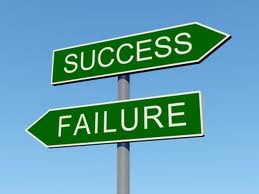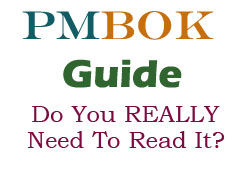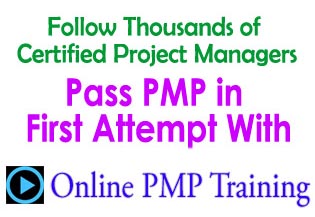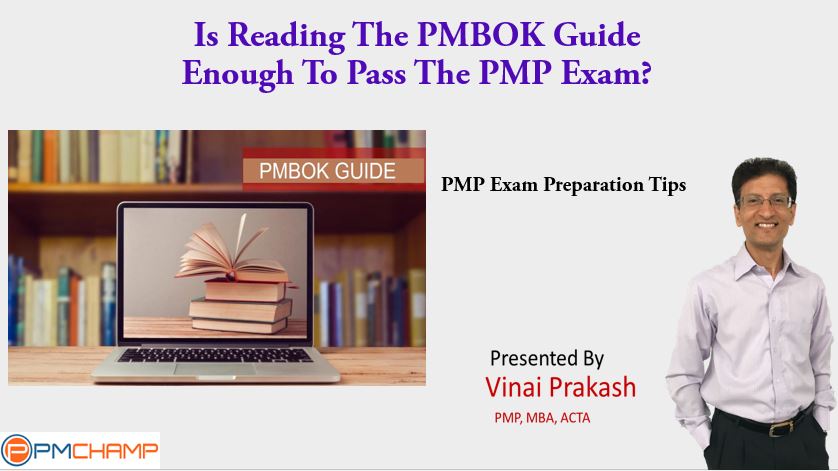At Intellisoft Systems, a training institute where I conduct 4 Day PMP Exam Preparation workshops, many busy project managers come and say something like this:
“I don’t have much time. I am a very busy person. I can’t be spending 5 days going though this project management training program…”, or
“Listen, I have over 20 years of project management experience, and I could easily teach all about Project Management easily. How about you just give me the course material, and books etc., and I’ll prepare for the exam myself. And I am not asking for any favour, I’ll pay for the material and books. In fact, I think that if I just go through the PMBOK Guide, I’m pretty sure I can pass the exam easily.”
Some post on the PMP Forum, about whether there is a need to study the PMBOK guide or not?
The PMP Training coordinators listen patiently, and says something like: “Yes, you can read the PMBOK guide. But that alone may not be sufficient. What you need is a thorough understanding of the Project Management Methodology. And you also need to understand what PMI like to test you on in the PMP exam. Just reading the PMBOK guide, and understanding “how it applies to the PMP exam” are very different things“. You need to be in an “exam taking mode” when you study the PMBOK guide.
 Reading the PMBOK Guide is very boring!
Reading the PMBOK Guide is very boring!
Added to this, reading the PMBOK guide is not easy. It is very dry, boring, and difficult to read after a couple of pages… No wonder it is called the best “sleeping pill” by many PMP aspirants… When you begin reading the PMBOK guide, everything seems pretty simple, and easy to understand. But remember, the exam is not as straight forward as it may seem. You need to have a step-by-step, proper study plan for the PMP exam.
The PMP Exam is Tricky…
The problem only appears when you see mock PMP questions on the topic you just read, and then you realise that most PMP questions are situational. The PMBOK guide does not prepare you for such kind of questions. It just gives you the theory, facts behind each process. But how they fit with each other, how the overall process works, and how to apply the information to PMP questions is completely missing.
Secondly, the questions are pretty tricky, and you have to read them very carefully, to spot qualifiers. See my separate post on Keywords that change the meaning of PMP questions. Sometimes, people wonder if PMI is really testing on their English reading and comprehension skills, because you can get the question wrong if you miss a single word.
The PMP exam is designed to test real project management knowledge, skills and experience in handling real life projects, as well as your understanding of the complete project management methodology.
Therefore, it is NOT sufficient to just mug the PMBOK Guide, or only to have project management experience.

And in terms of Project management experience, not everyone has experience in handling each and every aspect of project management – some project managers have very little experience on hand to do Risk Management, or Quality Management, or Communication Management, and then there are others who have never done Procurement management, as they do most of the work in-house. So such project managers have blind spots in their knowledge… even though they think they have successfully delivered projects, they lack in certain areas, causing them to do badly in the PMP exam, and many, sadly, fail…
The PMP Exam’s passing score in 2016 and 2017 has been quite bad. Less than 50% of the people who give the PMP exam are able to pass in their first attempt. This means that the majority of them fail the PMP exam in their first attempt. Why is this so? How come people with years of experience managing projects not able to clear it easily?
There are several issues here, which you need to address, namely:
- Lack of understanding of the entire project management methodology,
- Underestimating the PMP exam, or Having over confidence on their ability to handle the PMP exam questions,
- Limited experience in handling large scale projects – which would have required you to do extensive planning, communications, risk management, quality management, and monitoring & controlling.
- Not enough time to prepare for the PMP exam
- Not doing enough practice on the Mock PMP Exams
- Not going through an Exam focused PMP Coaching
- Not taking the exam seriously.
- Poor time management
Check it out. See which ones are you guilty of?
Fortunately, if you treat “passing the PMP exam” as a project, and plan for it systematically, study regularly, and check your progress against mock PMP papers, you can do well, and it is not an impossible task anymore!
Some PMP Resources to help you in your journey to become a certified PMP:
- Best Resources for the PMP Exam
- Do you need to memorize the ITTOs for the PMP exam?
- Creating a Study Plan for your PMP examination preparations.
- Best Books for PMP Exam Preparation
- How to Answer PMP Questions [Video]
- PMP Exam Prep Coaching (Our own PMChamp 6 week Online PMP Training & Coaching Program as well as the PMP Intensive)
Let me know how your preparation for the PMP exam is going on? If you need any help, or have any questions, you can contact me, or post your questions on the PMChamp PMP Forum.
All the Best!
Cheers,
Vinai Prakash, PMP, MBA, ACTA, GAP, Six Sigma
Founder of PMCHAMP


Vinai
That’s a great post!. I just passed the PMP recently (August of 2011) on my first attempt. I have to say that a focused approach like you suggest is the only way to ensure success. I was inspired by my journey for the PMP to create a blog about my experience. I think that more articles like yours here would be helpful as a lot of information out there points people to “Quick Fix” solutions for obtaining the PMP. I really admire your focused and concise approach.
Hi Vinai,
I am very disturb because i failed the 2nd times for the PMP exam. First time failed on 22nd May 2012 and 2nd time on 16th August 2012.
first time was unable to finish on time and questions were to elaborative and lenghty.
2nd times was good and on time. understand and well failed again.
should i try the 3rd time or give up. i think i am not good enough.
regards
Ann Lee